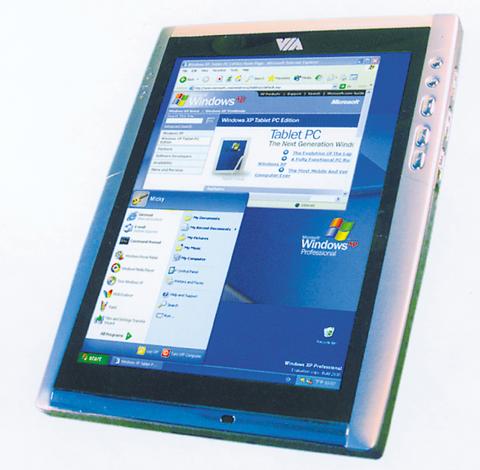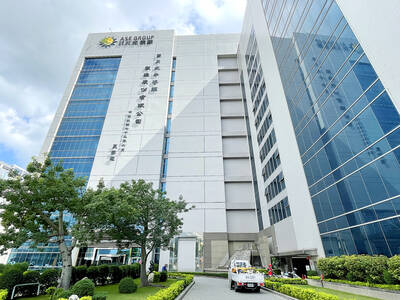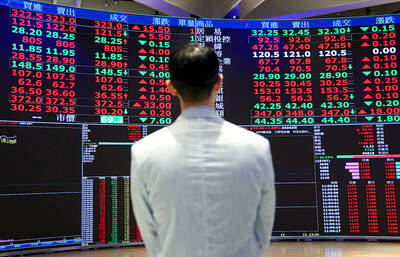The world's manufacturers of tablet PCs are scheduled to simultaneously launch their products today to coincide with Microsoft's introduction of the English Windows XP Tablet PC Edition. But while manufacturers are touting the device as the next killer gadget to lift the computer market out of the doldrums, market watchers expect unspectacular sales next year.
Certainly the PC market is not what it used to be. Five years ago computer vendors could rely on double-digit annual sales growth, yet next year the traditional computer market is estimated to grow by only 8 percent, according to research company Gartner Dataquest. The first tablet PCs -- A4-sized devices with all the power and performance of traditional computers -- will hit store shelves today. But despite their novelty, these computing alternatives will not be a cure-all for the ailing computer market.
Two years ago Microsoft Corp's chairman and CEO, Bill Gates, strode onto a Las Vegas stage heralding the dawn of a new era in computing -- the tablet PC. Now promoted as the next "evolution of the notebook PC," the tablet is supposed to be more user-friendly than a notebook and easily cradled in the user's arm.

PHOTO: VIA TECHNOLOGIES
By writing on the screen with a special pen, handwritten notes can be saved on the computer, or converted to text for use in other applications. Users can also opt to speak into a built-in microphone and have text converted by Microsoft's software.
Taiwan currently makes more than half the world's notebook computers, and PC makers here have been quick to jump on the tablet PC bandwagon. Microsoft Taiwan expects many local companies to be manufacturing tablet PCs by the end of next year.
Today, models from Acer Inc (宏電), First International Computer Inc (FIC, 大眾電腦), Tatung Co, (大同), Paceblade Technology, Viewsonic Corp, Hewlett-Packard Taiwan Ltd and VIA Technologies Inc (威盛電子) are expected to hit store shelves. Chinese-language versions will be available on Nov. 14.
Tablet PC software maker Microsoft is predicting a rosy future for the gadgets. "By the end of 2003, we expect one third to one half of mobile PC sales to be tablet PCs," said Jessie Chiu (邱敏珍), marketing manager at Microsoft Taiwan. But Gartner Dataquest, a computer market research company, predicts that globally only 425,000 tablet PCs will be sold next year out of a total of 35.6 million notebook computer sales worldwide.
Market watchers are less than optimistic about the tablet PC. "I recently visited [notebook maker] Compal and questioned the president about whether tablet PCs could make up 30 percent of the notebook market next year. His view was that it was too early to say whether the tablet PC would see significant growth next year. I tend to agree with him," said Martha Chen (陳洪) of Primasia Securities in Taipei.
Even manufacturers don't expect the tablet PC to take off so quickly. "The opinion expounded by Acer and Taiwanese manufacturers is that the tablet PC is a revolutionary product that can make a difference to the PC market," said Jason Juang (莊正松), general manager of the personal systems group at Hewlett-Packard Taiwan Ltd. "The opinion put forward by IBM and Dell is that it is a premature product that will not change the world. We are also very conservative and only expect to sell a few thousand units in Taiwan next year."
Tablet prices may be the deciding factor for some consumers, with Acer's tablet priced at NT$70,000 in Taiwan, and FIC's closer to NT$56,000.
Tablet PCs differ from notebooks in that the keyboard is removed and replaced with handwriting and voice recognition, however, the advantages of the two functions may be over-estimated.
Currently all manufacturers offer either a hinge-mounted or a touch-screen keyboard. "The tablet PC is a very compelling concept when sitting in a meeting, walking around or when making a presentation, but when you want to sit down at your desk and work, most people demand a keyboard," said Elias Ek, director of international marketing at PaceBlade Technology.
One of the obvious drawbacks of the tablet PC is the exposed screen. Of current models, HP's uses shatterproof glass and is stronger than Acer's screen, HP's Juang commented.
Other analysts have expressed concern about the durability of the hinge design and fear it might break easily. Acer's Kan refutes this claim: "We had the same concern in the beginning, but after undergoing two years of lab and factory testing, we now guarantee the hinge for 30,000 uses, or 15,000 full rotations. That means three years of use if rotated five times a day every day."
Even if these concerns are addressed, the key factor that drive PC sales are the applications that are unique to the tablet. "The most important thing for tablets is the software applications," Acer's Kan said. Otherwise, the tablet PC may simply not be enough of a gimmick alone to push sales. In a recent survey of 800 consumers in the US, industry analyst International Data Corp (IDC) found that users wanted a tablet PC to come with TV and video capabilities as well as the ability to function as a universal remote control.

EXPANSION: The investment came as ASE in July told investors it would accelerate capacity growth to mitigate supply issues, and would boost spending by 16 percent ASE Technology Holding Co (ASE, 日月光投控), the world’s biggest chip assembly and testing service provider, yesterday said it is investing NT$17.6 billion (US$578.6 million) to build a new advanced chip packaging facility in Kaohsiung to cope with fast-growing demand from artificial intelligence (AI), high-performance-computing (HPC) and automotive applications. The new fab, called K18B, is to commence operation in the first quarter of 2028, offering chip-on-wafer-on-substrate (CoWoS) chip packaging and final testing services, ASE said in a statement. The fab is to create 2,000 new jobs upon its completion, ASE said. A wide spectrum of system-level chip packaging technologies would be available at

Taiwan’s foreign exchange reserves hit a record high at the end of last month, surpassing the US$600 billion mark for the first time, the central bank said yesterday. Last month, the country’s foreign exchange reserves rose US$5.51 billion from a month earlier to reach US$602.94 billion due to an increase in returns from the central bank’s portfolio management, the movement of other foreign currencies in the portfolio against the US dollar and the bank’s efforts to smooth the volatility of the New Taiwan dollar. Department of Foreign Exchange Director-General Eugene Tsai (蔡炯民)said a rate cut cycle launched by the US Federal Reserve

HEAVYWEIGHT: The TAIEX ended up 382.67 points, with about 280 of those points contributed by TSMC shares alone, which rose 2.56 percent to close at NT$1,400 Shares in Taiwan broke records at the end of yesterday’s session after contract chipmaker Taiwan Semiconductor Manufacturing Co (TSMC, 台積電) hit a fresh closing-high amid enthusiasm toward artificial intelligence (AI) development, dealers said. The TAIEX ended up 382.67 points, or 1.45 percent, at the day’s high of 26,761.06. Turnover totaled NT$463.09 billion (US$15.22 billion). “The local main board has repeatedly hit new closing highs in the past few sessions as investors continued to embrace high hopes about AI applications, taking cues from a strong showing in shares of US-based AI chip designer Nvidia Corp,” Hua Nan Securities Co (華南永昌證券) analyst Kevin Su

Nvidia Corp’s major server production partner Hon Hai Precision Industry Co (鴻海精密) reported 10.99 percent year-on-year growth in quarterly sales, signaling healthy demand for artificial intelligence (AI) infrastructure. Revenue totaled NT$2.06 trillion (US$67.72 billion) in the last quarter, in line with analysts’ projections, a company statement said. On a quarterly basis, revenue was up 14.47 percent. Hon Hai’s businesses cover four primary product segments: cloud and networking, smart consumer electronics, computing, and components and other products. Last quarter, “cloud and networking products delivered strong growth, components and other products demonstrated significant growth, while smart consumer electronics and computing products slightly declined,” compared with the